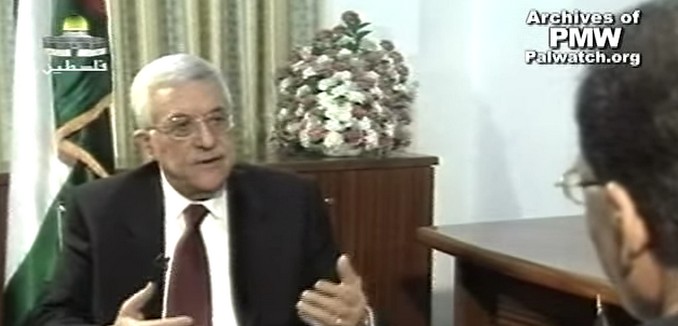After failing to get the requisite votes to impose a peace agreement on Israel in the United Nations Security Council, Palestinian Authority (PA) President Mahmoud Abbas signed onto twenty international treaties, including the Rome Statute, VOA News reported today.
Palestinian President Mahmoud Abbas signed on to 20 international agreements on Wednesday, including the Rome Statute of the International Criminal Court, a day after a bid for independence by 2017 failed at the United Nations Security Council. …
Riyad Mansour, the Palestinian representative to the U.N., said the Palestinian people can no longer wait. He said officials will meet Wednesday to discuss ICC membership as an avenue to bring charges of possible war crimes against Israel.
Earlier this year the PA signed onto 15 international treaties and was immediately in violation of 11 of them. The PA subsequently was, ironically, accepted into convention against corruption. The European Court of Auditors is starting to investigate charges of PA corruption.
Earlier this year a former prosecutor of the ICC, Luis Moreno-Ocampo, warned the PA that joining the ICC could put the PA in legal jeopardy on account of its unity government with Hamas, a terrorist organization. An Israeli NGO, Shurat Hadin, The Israel Law Center, last month petitioned the ICC to investigate Abbas for war crimes. Though the PA was not, at that time, a signatory to the Rome Statute, Abbas is a citizen of Jordan, which is.
Two years ago after a round of Abbas evading negotiations and seeking international pressure on Israel, The Washington Post’s Jackson Diehl noted:
Abbas’s step one was the surprise signing of an agreement in Cairo with the Islamic Hamas movement, ruler of the Gaza Strip, that promised to end the rift between Hamas and Abbas’s secular Fatah movement. A joint government was promised that would stage parliamentary and presidential elections within a year — i.e., by now. …
Abbas’s step two was the publication in the New York Times of an op-ed in which he declared his intention to take the Palestinian case to the United Nations, where he would seek full membership from the Security Council or General Assembly. This, he wrote, would “pave the way for the internationalization of the conflict as a legal matter” and allow “us to pursue claims against Israel at the United Nations, human rights treaty bodies and the International Court of Justice.”
Last September, Abbas duly launched his campaign at Turtle Bay. But neither the Security Council nor the General Assembly ever voted on the Palestinian case. In the Security Council, it turned out that the Palestinians lacked the votes to win even a simply majority, despite months of globe-trotting and lobbying of world leaders by Abbas. The only result of the U.N. campaign was the admission of Palestine to UNESCO — and the subsequent devastation of that cultural agency’s budget by the loss of U.S. funding. Other U.N. agencies quietly begged the Palestinians not to apply.
The op-ed that Diehl cited is important as Abbas declared in it his intention to go eschew negotiations and seek statehood in international organizations.lat
The basis of the peace process was a commitment by the Palestinians to renounce violence and commit to bilateral negotiations. Abbas’ appeals to international organizations are pursued in purposeful disregard of that latter commitment.
[Photo: PalMediaWatch / YouTube ]




